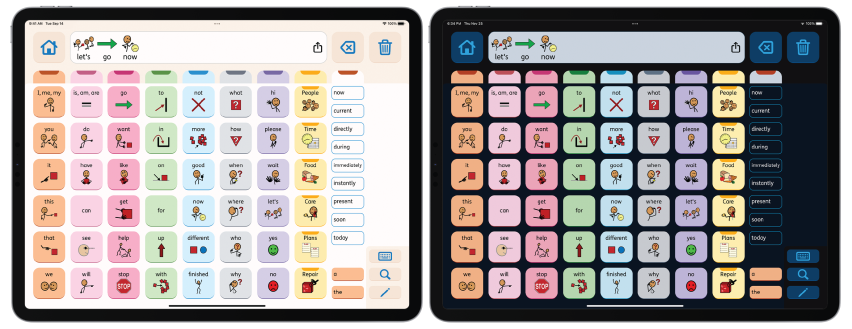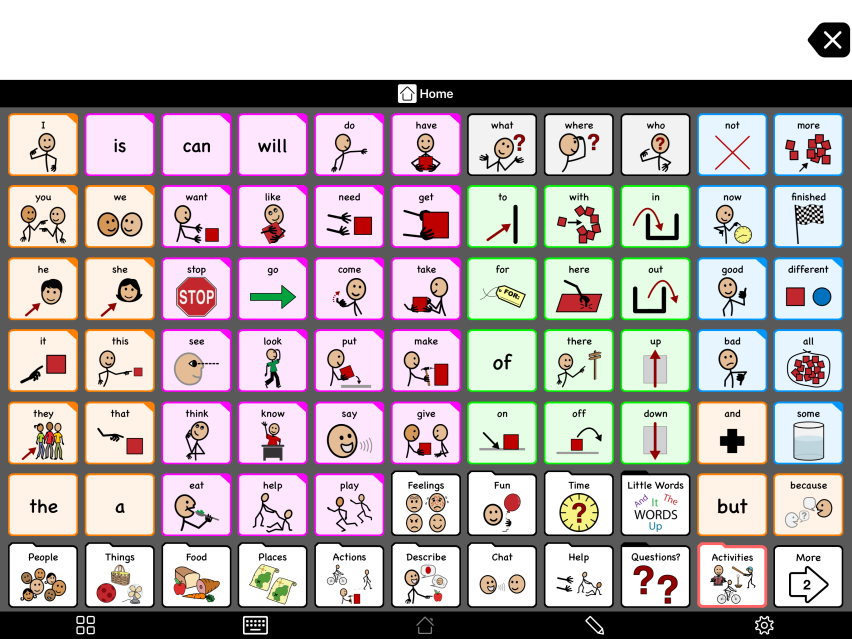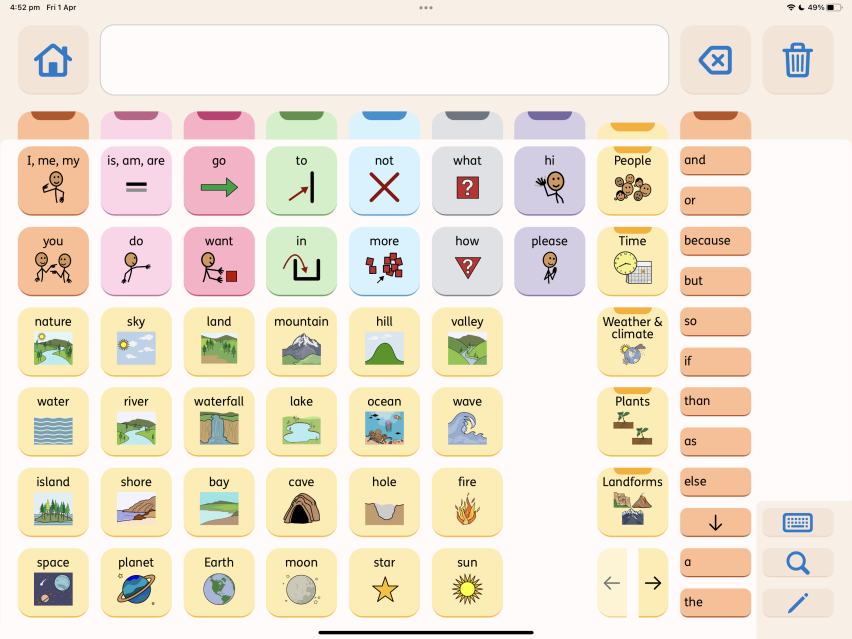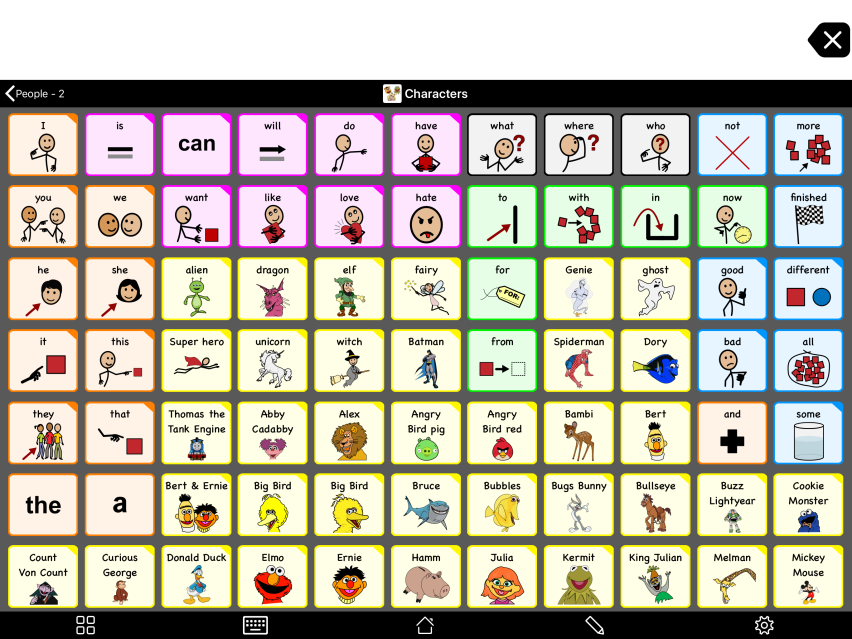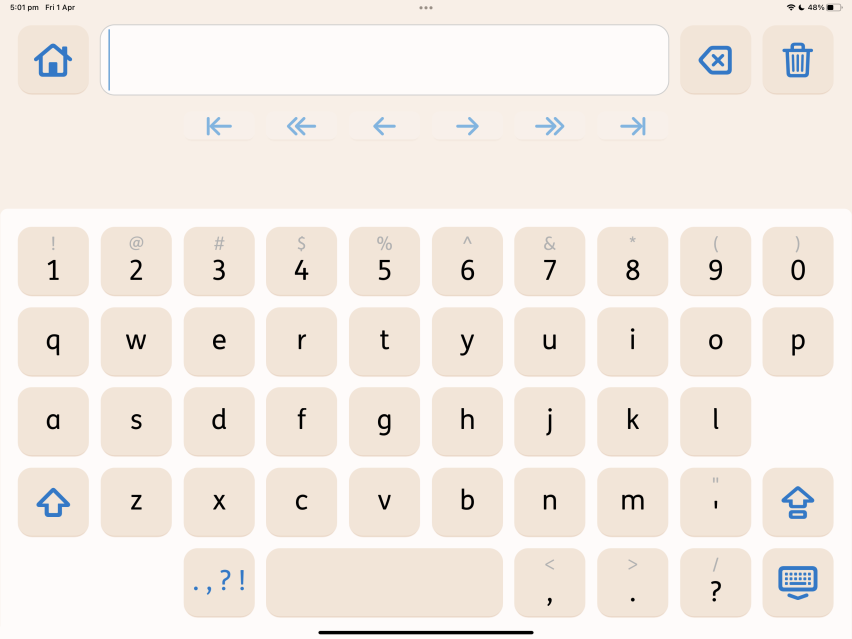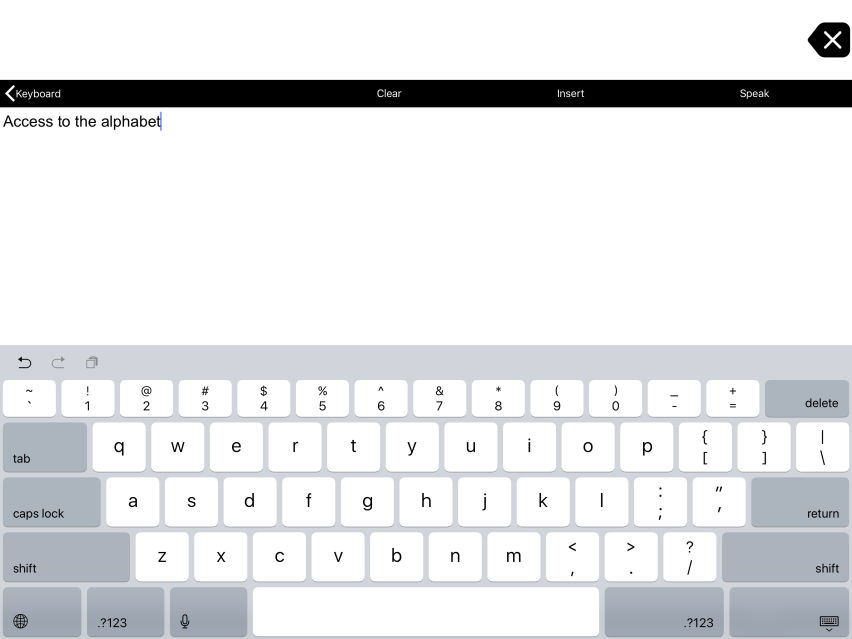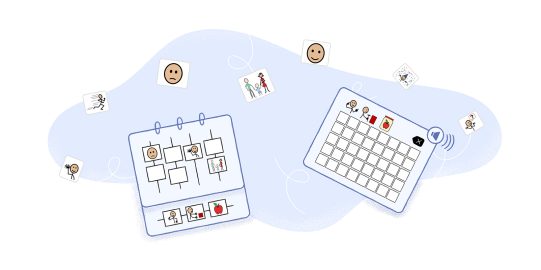Selecting the Augmentative and Alternative Communication (AAC) your learner needs is an essential step in the AAC journey. And we should start with the end in mind. Our goal is for them to learn to combine words into sentences to express thoughts, feelings, and opinions. Presuming competence means that ultimately, we hope for the user to be able to do more than use nouns to make requests. We also want them to learn literacy, so they have the freedom to say exactly what they want to.
To get there, we need to provide AAC users with a system whose vocabulary includes many words in every word category. We also need to provide access to the alphabet. These are the building blocks of language and communication. With exposure and opportunities to practice with these building blocks, AAC users can become independent and successful communicators.
In more technical terms, this means that you should choose a balanced or robust AAC system. There are 4 ideal components: it should allow for different communication functions, and include core words, with quick access to fringe vocabulary and the alphabet. We will look at how these are designed for the growth of language skills in a AAC user.
4 components of a balanced robust AAC system
1. Communication functions
There are many reasons to communicate. We call these communication functions. A solid balanced AAC system will allow for communicators to give messages for a wide variety of reasons. AAC tools should allow someone to give their opinion, ask for things, tell stories and jokes, ask questions, and share what they know.
2. Core words
The English language has at least 250,000 words. However, a list of around 200 words accounts for about 80% of the words we use every day! These words are called “core words.”
Core words include:
- verbs (“go”, “come”),
- adjectives (“good”, “little”),
- prepositions (“to”, “on”),
- pronouns (“you”, “that”),
- articles (“the” “a”), and
- conjunctions (“and,” “but”).
Core words are not usually nouns. Only a few of top 200 core words are nouns. These nouns are very general nouns (“girl”,“house”) rather than specific ones (“porcupine”, “celery”).

